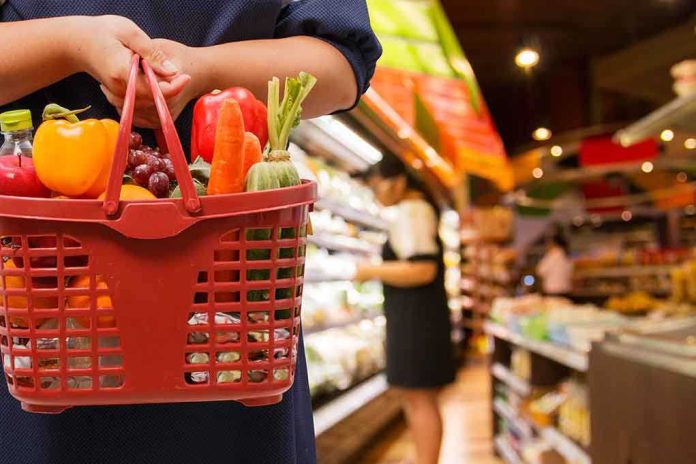
When a Charlotte grocery store decided to deliver food for free to undocumented immigrants, it quietly ignited a local storm—blurring the lines between neighborly compassion and the reach of federal law.
Story Snapshot
- Charlotte store launches free delivery for undocumented immigrants to help them avoid ICE.
- Rising ICE activity in North Carolina triggered the program and community response.
- Store faces legal and ethical scrutiny while advocacy groups push for city support.
- Debate grows over legality, morality, and consequences for local policy and social cohesion.
Charlotte Store’s Delivery Program Divides and Unites
April 2024 marked a subtle but seismic shift in Charlotte’s immigrant community. A local grocery store began delivering food—free of charge—to undocumented immigrants, specifically to help them avoid encounters with ICE agents. The store acted after months of escalating fears, punctuated by reports of ICE vehicles idling near schools and workplaces. When the program launched, demand was immediate. Community groups rallied, local churches and nonprofits lent support, and the story spilled into local media, fueling a debate that split the city’s residents between admiration, outrage, and uncertainty.
Management at the store described the program as a humanitarian necessity, not a commercial gimmick. “We’re doing what’s right for our neighbors,” a store manager told reporters. Advocacy groups echoed this sentiment, arguing that the service provided vital security for families afraid to leave their homes. But as word spread, critics surfaced, questioning the legal boundaries and wondering if such initiatives embolden illegal immigration or put the store at risk of federal retaliation. Some city officials found themselves caught between the political heat and the practical needs of the community, aware that their stance might shape Charlotte’s reputation—and its future policy.
ICE Enforcement Sparks Community Solidarity and Tension
ICE, for its part, responded with careful ambiguity. Spokespersons reiterated that enforcement efforts would prioritize criminal targets, but stopped short of ruling out civil enforcement. This equivocation only fueled public anxiety and speculation. Amid the uncertainty, local businesses began to reconsider their own policies, with some quietly exploring similar delivery options. Advocacy groups ramped up lobbying efforts, urging city officials to shield businesses from federal reprisal and to clarify the city’s stance on immigration enforcement. The ripple effect extended far beyond Charlotte’s borders, as other cities watched with interest—and some with apprehension.
Historical precedent offers context but little comfort. In 2019, California grocery stores rolled out free delivery during ICE crackdowns. New York bodegas created “safe zones” for vulnerable customers in 2022. Each time, the moves sparked their own cycles of outrage and support, legal threats and community mobilization. Charlotte’s case, however, stands out for its timing, scope, and the explicit targeting of undocumented immigrants. The fact that a single store’s decision could trigger such widespread reaction speaks volumes about the intersection of federal enforcement and local ethics in contemporary America.
Legal and Ethical Dilemmas Test Conservative Values
Legal experts warn that businesses aiding undocumented immigrants risk federal intervention, especially if their programs are perceived as obstructing enforcement. Yet, many point out that humanitarian protections can sometimes shield such initiatives, provided they do not explicitly violate the law. Business ethicists, meanwhile, argue that the moral imperative to protect vulnerable customers should outweigh fears of federal reprisal. These arguments resonate strongly in communities where undocumented immigrants are not just statistics but neighbors, co-workers, and friends.
From a conservative American perspective, the story challenges deeply held beliefs about law, order, and personal responsibility. On one hand, critics contend that the store’s actions undermine federal authority and reward illegal behavior. On the other, supporters see an example of local solidarity and the kind of neighborly compassion they believe strengthens communities. The tension between these viewpoints reflects the broader national debate—one that is unlikely to resolve soon, but is increasingly shaped by the actions of everyday citizens and businesses.
What Happens Next for Charlotte—and Beyond?
By June 2024, the grocery store’s delivery program had grown, with more customers and wider coverage. Churches and nonprofits joined the effort, signaling that the initiative had become a community movement rather than a solitary act of defiance. Advocacy groups intensified their push for legal protections and city endorsement, while ICE maintained its focus on enforcement priorities without directly confronting the store. The debate rages on in neighborhood meetings, online forums, and city council chambers. The outcome—whether legal challenges, policy changes, or a quiet compromise—remains uncertain.
Charlotte’s story offers more than just a snapshot of local controversy; it serves as a litmus test for how American communities navigate the gray areas between federal law and local ethics. Whether the delivery program leads to lasting change or fades under legal pressure, its impact is already evident. The lines between compassion, legality, and civic duty have never been more blurry—or more consequential. For now, the city watches, waits, and wonders: where is the line, and who will draw it next?
Sources:
Migration Policy Institute. (2023). Immigration Enforcement Trends in North Carolina.
Los Angeles Times. (2019). California Stores Respond to ICE Raids.
NY Daily News. (2022). Bodegas Offer Safe Zones for Immigrants.
American Immigration Council. (2024). Legal Risks for Businesses Serving Undocumented Immigrants.
Harvard Business Review. (2023). Business Ethics in Community Crisis.
Charlotte Observer. (2024). Local Grocery Store Offers Free Delivery to Immigrants.
WCNC Charlotte. (2024). ICE Activity Prompts Business Response.
NPR. (2024). Immigration Enforcement and Local Business Initiatives.
Associated Press. (2024). ICE Enforcement Priorities.



